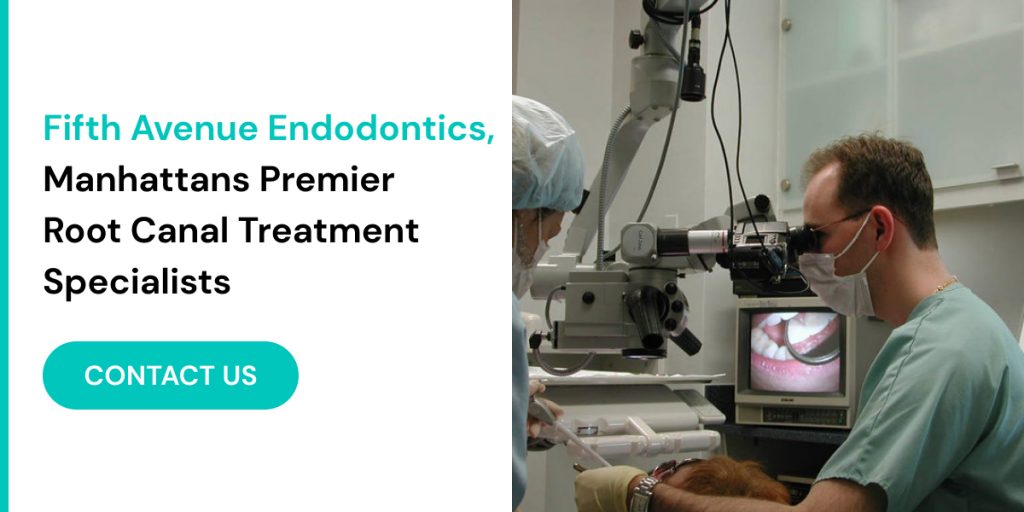Dental emergencies can be alarming and painful, especially when they involve the need for a root canal. These situations often come without warning and can cause significant distress, making it crucial to know the appropriate steps to take. Prompt action and the right knowledge can make all the difference in preserving your dental health and alleviating discomfort. This article aims to equip you with essential information on handling dental emergencies requiring root canal surgery in Manhattan. We will cover critical aspects such as recognizing the symptoms that necessitate immediate care, tips on finding a reputable emergency root canal surgeon in Manhattan, and what to expect during the urgent treatment process. Additionally, we will provide insights into managing pain and discomfort post-treatment and strategies to prevent future dental emergencies. By understanding these vital elements, you can ensure a swift and effective response, safeguarding your oral health and overall well-being.
Understanding Dental Emergencies
A dental emergency can occur unexpectedly and may involve severe pain, infection, or trauma to the teeth. Recognizing these emergencies and knowing how to respond can make a crucial difference in preserving dental health and alleviating pain. Here are some common scenarios that might necessitate an emergency root canal and how to handle them:
Severe Toothache
One of the most common signs of a dental emergency is a severe toothache. Persistent and intense tooth pain can indicate an infection that has reached the pulp of the tooth, which is the innermost part containing nerves and blood vessels. This type of pain is often unresponsive to over-the-counter pain relievers and can be debilitating, making it difficult to eat, sleep, or concentrate on daily activities. If you experience this kind of pain, it’s essential to seek immediate dental care. An endodontist, like Dr. Iofin at Fifth Avenue Endodontics, can diagnose the cause of the pain and determine if a root canal is necessary to save the tooth and relieve discomfort.
Abscess
An abscess is a serious dental condition that manifests as a painful, swollen area in the gums, often filled with pus. This indicates a severe infection that has spread to the surrounding tissues and bone. Symptoms of an abscess may include throbbing pain, fever, swollen lymph nodes, and a bad taste in the mouth due to the pus discharge. An abscess requires urgent attention because the infection can spread rapidly, leading to more severe health complications. Emergency root canal treatment is often needed to drain the abscess, remove the infection, and prevent further damage.
Trauma
Injuries to the teeth from accidents or sports activities can cause significant damage to the tooth’s structure and the pulp inside. Trauma might result from a direct blow to the mouth, a fall, or any impact that causes the tooth to crack, chip, or even become dislodged. When the pulp is damaged, it can lead to severe pain and increased risk of infection. Immediate dental care is crucial in these situations. An emergency root canal may be required to treat the injured pulp, prevent infection, and save the tooth. Using a mouthguard during sports activities can help prevent such injuries and protect your teeth.
Cracked or Chipped Tooth
A significant crack or chip in a tooth that exposes the pulp needs urgent care to prevent infection and further damage. Cracks and chips can occur from biting down on hard foods, grinding your teeth, or an injury. When the pulp is exposed, it becomes vulnerable to bacteria, leading to infection and severe pain. Symptoms may include pain when chewing, sensitivity to hot and cold, and swelling around the affected tooth. If you notice a crack or chip, it’s important to see an endodontist immediately. Emergency root canal treatment can clean out the damaged pulp, seal the tooth, and restore its function.
What to Do in a Dental Emergency: Root Canal Surgery in Manhattan
When faced with any of these dental emergencies, it’s vital to remain calm and seek professional care promptly. Here are some steps to take:
- Contact an Endodontist: Call a reputable endodontist like Dr. Iofin at Fifth Avenue Endodontics. Explain your symptoms and schedule an emergency appointment.
- Manage Pain: Use over-the-counter pain relievers like ibuprofen to manage pain until you can see the endodontist. Avoid placing aspirin directly on the gums as it can cause irritation.
- Reduce Swelling: Apply a cold compress to the outside of your cheek to reduce swelling and numb the pain.
- Protect the Tooth: If a tooth is cracked or chipped, avoid chewing on that side of your mouth. If a tooth is knocked out, try to place it back in the socket or keep it in a container of milk until you get to the dentist.
Understanding dental emergencies and knowing how to respond can significantly impact the outcome of the situation. Severe toothaches, abscesses, trauma, and cracked or chipped teeth all require prompt attention from an endodontist to prevent further complications and ensure optimal dental health. By being prepared and knowing where to turn for help, such as Fifth Avenue Endodontic, you can handle dental emergencies effectively and protect your oral health.
Signs You Might Need an Emergency Root Canal
Recognizing the symptoms that warrant an emergency visit to a root canal surgeon in Manhattan is crucial. Timely intervention can prevent more severe complications and preserve your dental health. Here are the key signs indicating you might need an emergency root canal:
Persistent and Severe Tooth Pain
One of the most common indicators of a serious dental issue is persistent and severe tooth pain. This pain often doesn’t subside with over-the-counter painkillers and can interfere with daily activities like eating, sleeping, and concentrating. The pain typically results from an infection or inflammation in the tooth pulp, the innermost part of the tooth containing nerves and blood vessels. When the pulp becomes infected or damaged, it can cause intense, throbbing pain. If you experience such pain, it’s crucial to seek immediate dental care to address the underlying issue.
Sensitivity to Hot and Cold Temperatures
Another sign that you might need an emergency root canal is heightened sensitivity to hot and cold temperatures. While minor sensitivity can be common, sensitivity that lingers long after exposure to hot or cold substances indicates a more serious problem. This prolonged sensitivity suggests that the pulp inside the tooth is damaged or infected. The nerves in the pulp can become hypersensitive due to infection or decay, causing discomfort when you consume hot or cold foods and beverages. If this sensitivity persists, it’s important to consult an endodontist promptly.
Swelling and Tenderness in the Gums
Swelling and tenderness in the gums around a specific tooth can be a clear sign of an underlying infection. This swelling is often accompanied by pain and can make it difficult to bite down or chew. The infection can spread from the tooth pulp to the surrounding tissues, causing inflammation and swelling. In some cases, the swelling may extend to the face or neck, indicating a severe infection that requires immediate attention. If you notice gum swelling or tenderness, it’s essential to visit a root canal surgeon to prevent the infection from spreading further.
Visible Abscess or Pimple-like Swelling on the Gums
A visible abscess or a pimple-like swelling on the gums is a significant indication of a dental infection. An abscess is a pocket of pus that forms due to a bacterial infection and can be extremely painful. The abscess can cause swelling, redness, and a bad taste in the mouth due to the discharge of pus. This condition requires urgent care because the infection can spread to other parts of the body if left untreated. An emergency root canal is often necessary to drain the abscess, remove the infection, and save the tooth.
Darkening of the Tooth
Darkening of a tooth is another sign that you might need an emergency root canal. When the pulp inside the tooth is damaged or dies, it can cause the tooth to discolor. This darkening is often a result of internal bleeding or a buildup of decay within the tooth. The change in color can range from a slight grayish tint to a noticeable darkening. If you observe that a tooth is becoming darker, it’s important to seek dental care immediately. An endodontist can assess the condition and perform a root canal if necessary to treat the infection and prevent further damage.
Importance of Immediate Dental Care
If you experience any of these symptoms, it’s essential to seek immediate dental care. Delaying treatment can lead to more severe complications, such as the spread of infection to other teeth, the jawbone, or even the bloodstream. In severe cases, untreated dental infections can result in tooth loss or the need for more extensive and invasive treatments. Prompt intervention by a qualified root canal surgeon in Manhattan, like Dr. Iofin at Fifth Avenue Endodontics, can alleviate pain, eliminate infection, and save your tooth.
Recognizing the signs that you might need an emergency root canal is crucial for maintaining your dental health. Persistent tooth pain, prolonged sensitivity to hot and cold, swelling and tenderness in the gums, visible abscesses, and tooth discoloration are all indicators of serious dental issues that require prompt attention. If you notice any of these symptoms, don’t delay in seeking care from an experienced endodontist. Immediate treatment can prevent further complications, alleviate pain, and help preserve your natural teeth.
Finding an Emergency Root Canal Surgery in Manhattan
When faced with a dental emergency, knowing where to find prompt and reliable care is essential. Here are some steps to help you locate an emergency root canal surgeon in Manhattan:
1. Research and Prepare in Advance
It’s wise to research and identify a reputable endodontist before an emergency strikes. Fifth Avenue Endodontics, led by Dr. Iofin, is a well-regarded practice in Manhattan specializing in root canal treatments. Having their contact information handy can save you valuable time and stress during an emergency.
2. Check for Emergency Services
Not all dental practices offer emergency services. Ensure that the endodontist you choose provides immediate care for urgent cases. Fifth Avenue Endodontics, for instance, is known for accommodating emergency patients swiftly, ensuring they receive the necessary treatment without delay.
3. Read Reviews and Testimonials
Patient reviews and testimonials can provide insights into the quality of care provided by an endodontist. Look for feedback on how the practice handles emergencies and the overall patient experience. Positive reviews can give you confidence in your choice of emergency root canal surgeon in Manhattan.
4. Ask for Recommendations
Your regular dentist can be an excellent resource for recommendations. They can refer you to a trusted endodontist who specializes in handling emergencies. Establishing a relationship with an endodontist like Dr. Iofin can also ensure continuity of care if you ever face a dental crisis.
What to Expect During an Emergency Root Canal
Facing an emergency root canal can be daunting, especially if you’re unsure about the procedure. Here’s a step-by-step overview of what to expect during an emergency root canal treatment:

1. Initial Examination and Diagnosis
Upon arrival, the endodontist will conduct a thorough examination to assess the extent of the damage and determine if a root canal is necessary. This may involve taking X-rays to get a detailed view of the affected tooth and surrounding area.
2. Local Anesthesia
To ensure a painless procedure, the endodontist will administer local anesthesia to numb the affected area. This step is crucial in making the treatment as comfortable as possible.
3. Accessing the Pulp Chamber
The endodontist will create a small opening in the tooth to access the infected or damaged pulp. Using specialized instruments, they will carefully remove the infected pulp and clean the root canals.
4. Cleaning and Shaping the Canals
Once the pulp is removed, the root canals are thoroughly cleaned and shaped to prepare them for filling. This step is essential to eliminate any remaining bacteria and prevent future infections.
5. Filling the Canals
After cleaning, the root canals are filled with a biocompatible material called gutta-percha. This material seals the canals and prevents bacteria from re-entering.
6. Temporary or Permanent Filling
Depending on the situation, the endodontist will place either a temporary or permanent filling to seal the access hole. A temporary filling may be used if further restoration, such as a crown, is needed later.
7. Post-Treatment Care
After the procedure, the endodontist will provide instructions for post-treatment care, including managing any discomfort and ensuring proper oral hygiene. Follow-up appointments may be scheduled to monitor the healing process and complete any additional restorations.
Tips for Managing Pain and Discomfort
Experiencing some discomfort after an emergency root canal is normal, but there are ways to manage it effectively:
- Over-the-Counter Pain Relief: Medications like ibuprofen or acetaminophen can help alleviate pain and reduce inflammation.
- Cold Compress: Applying a cold compress to the outside of your cheek near the treated area can help reduce swelling and numb the pain.
- Soft Diet: Stick to soft foods and avoid chewing on the treated tooth until it’s fully restored and healed.
- Oral Hygiene: Maintain good oral hygiene by gently brushing and flossing your teeth. Avoid aggressive brushing around the treated area.
Preventing Future Dental Emergencies
While it’s not always possible to prevent dental emergencies, there are steps you can take to minimize the risk:
- Regular Dental Check-ups: Routine visits to your dentist can help catch potential issues early before they escalate into emergencies.
- Mouthguards: If you play sports or engage in activities with a risk of dental injury, wear a mouthguard to protect your teeth.
- Avoid Hard Foods: Refrain from biting down on hard objects like ice, popcorn kernels, and hard candies, which can cause cracks or chips in your teeth.
- Good Oral Hygiene: Brush and floss daily to keep your teeth and gums healthy, reducing the risk of infections and decay.

Conclusion
Dealing with a dental emergency can be stressful, but knowing how to handle the situation and where to find an experienced root canal surgeon in Manhattan can make a significant difference. Fifth Avenue Endodontics, led by Dr. Iofin, is dedicated to providing top-notch emergency root canal treatments to ensure you receive the care you need promptly and effectively.
Remember, if you experience severe tooth pain, swelling, or any signs of infection, don’t hesitate to seek immediate care from a trusted endodontist. Timely treatment can save your tooth and alleviate your pain, helping you return to your normal routine as quickly as possible.

